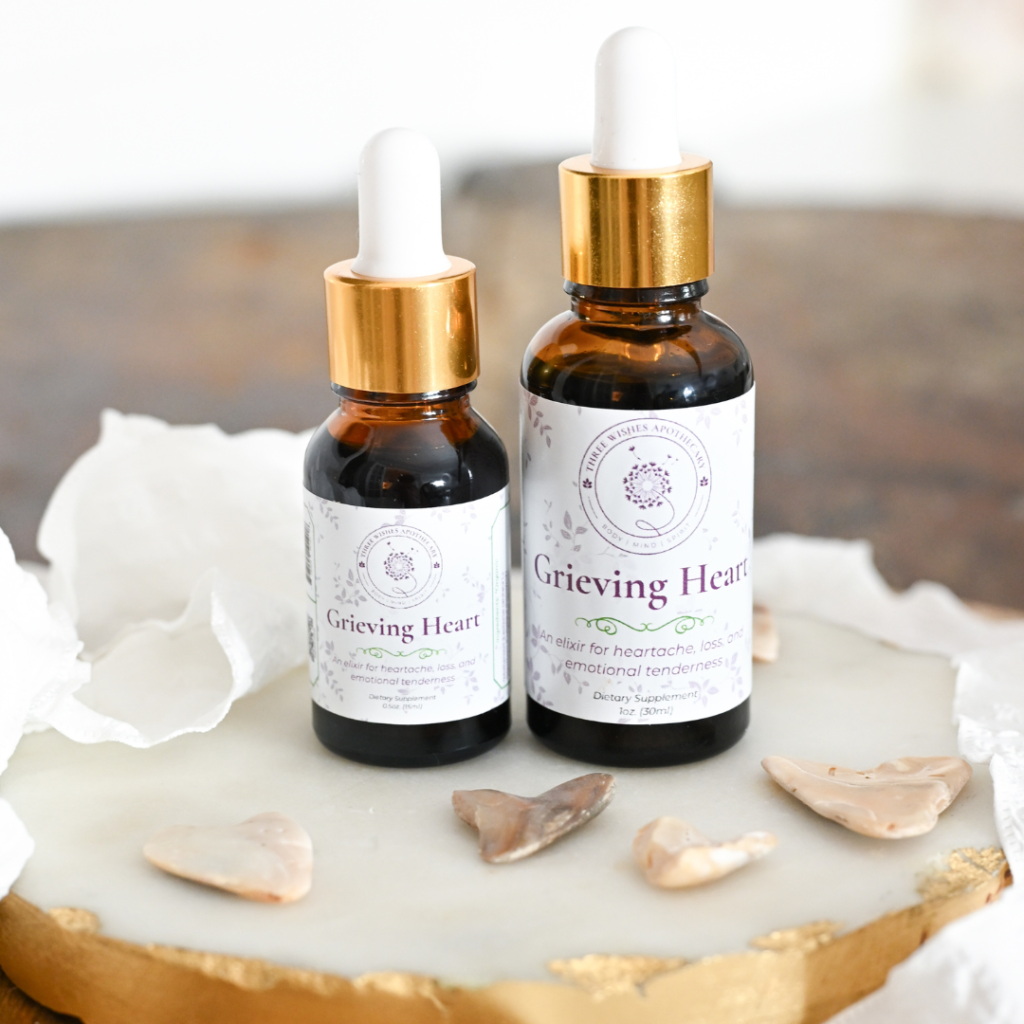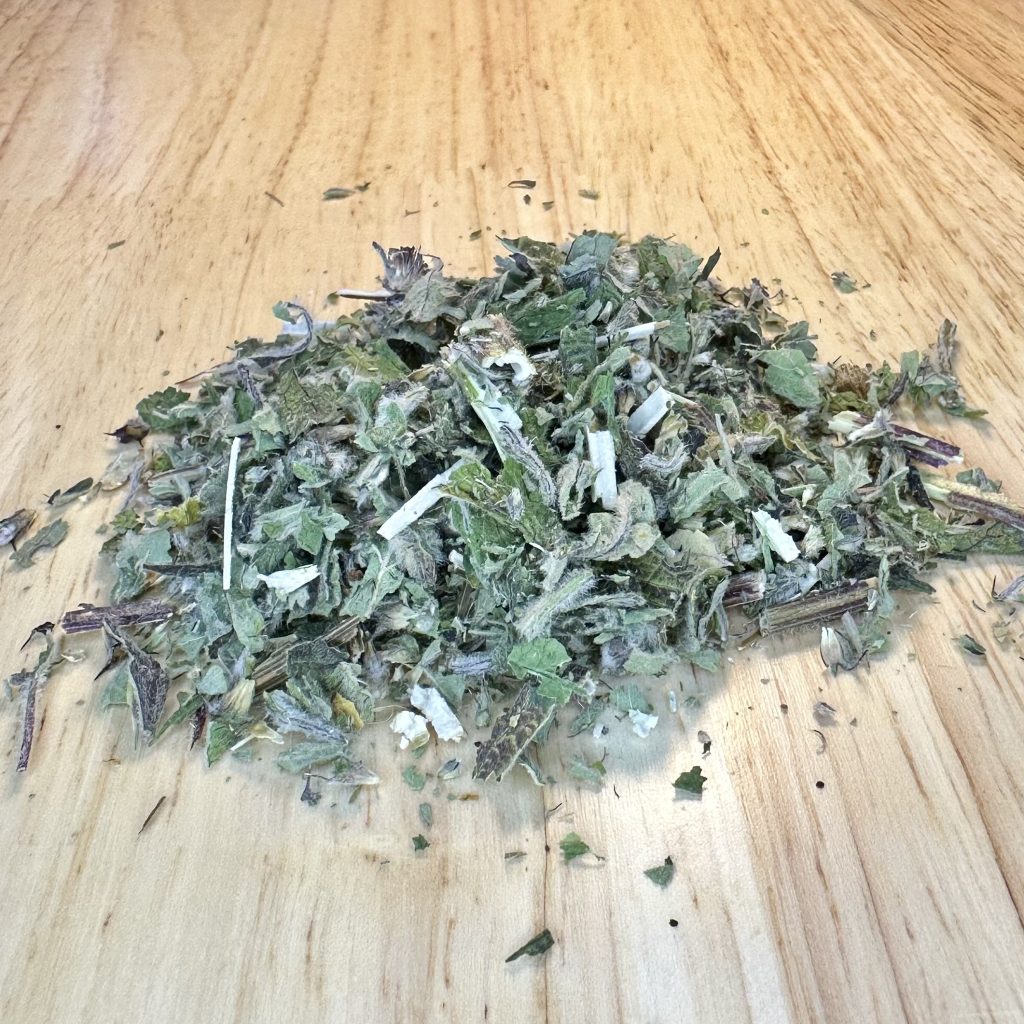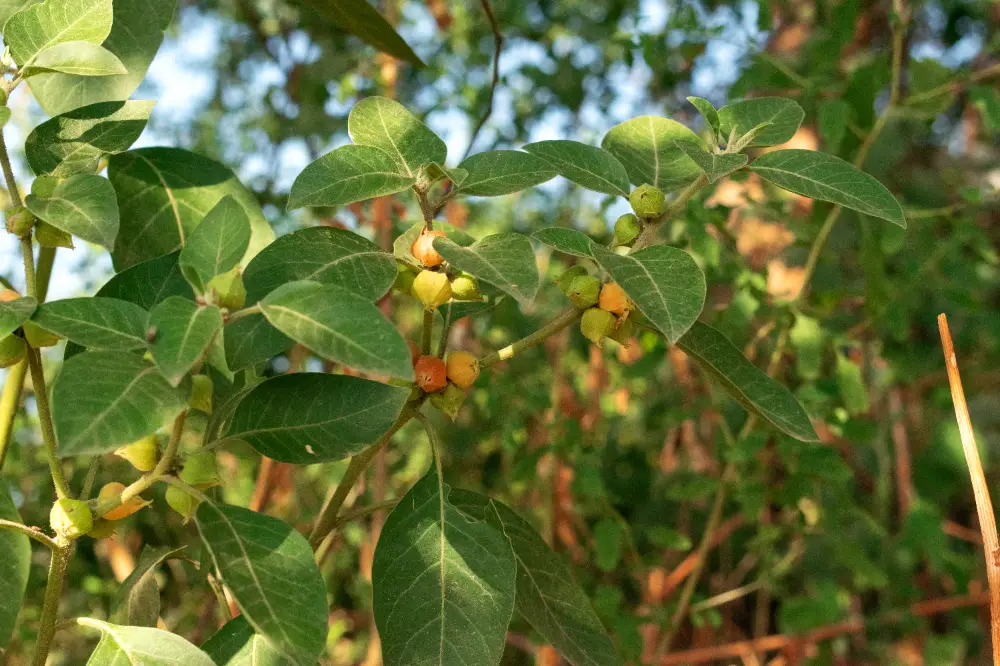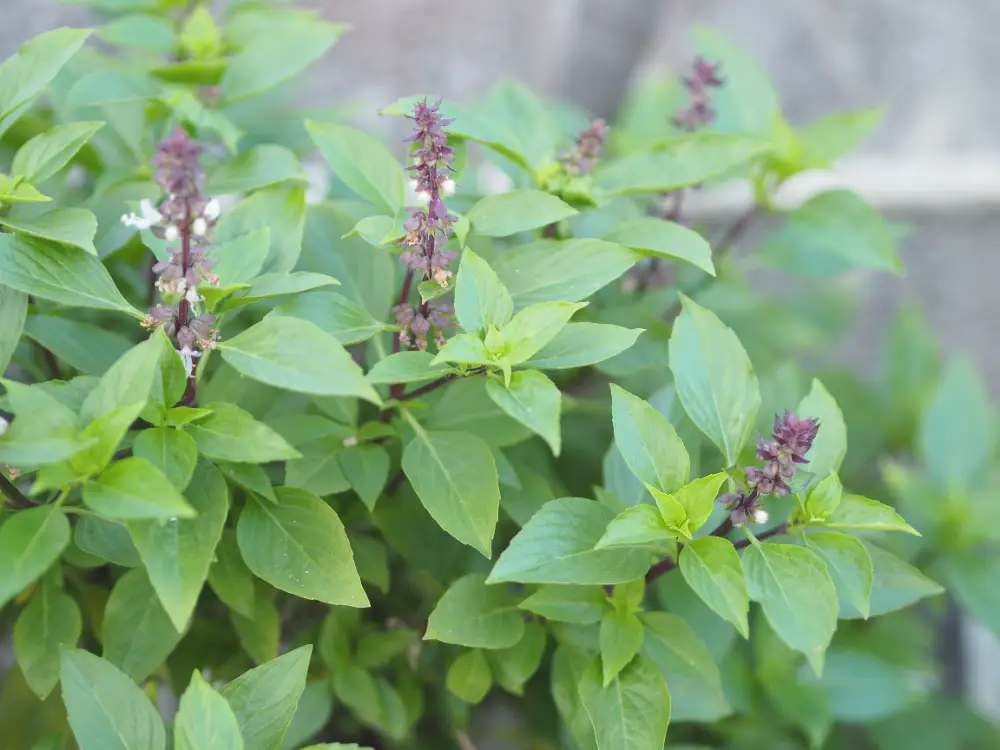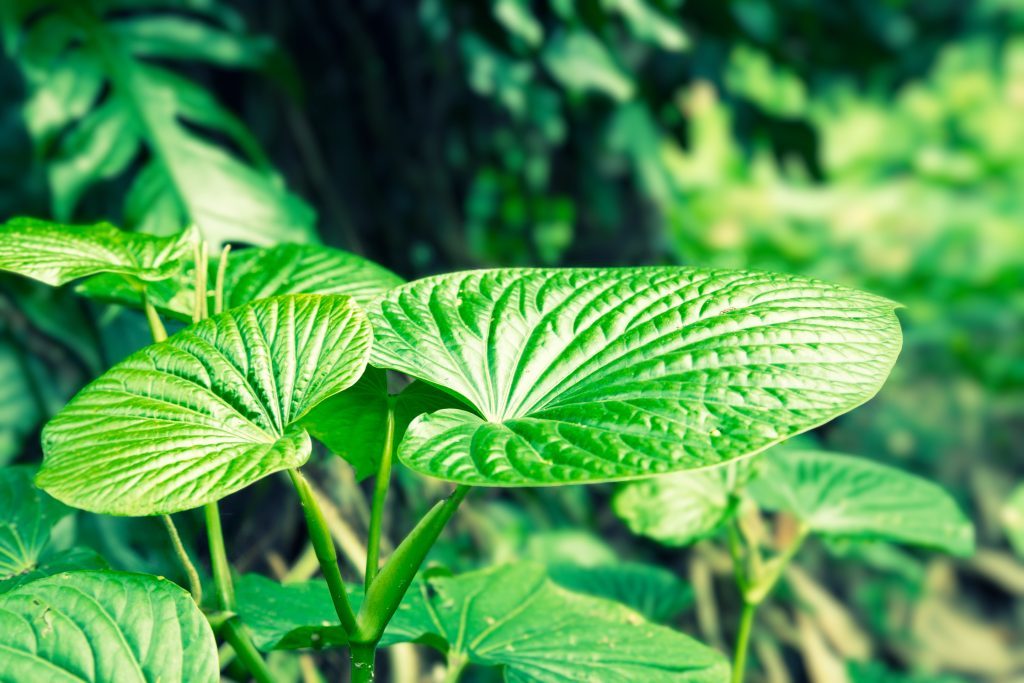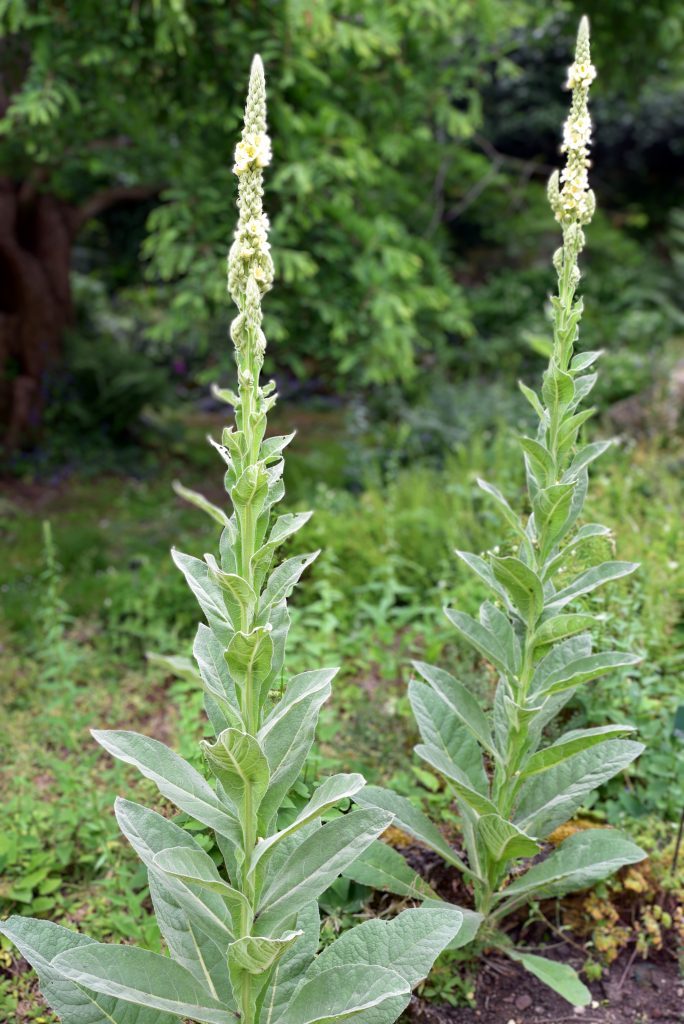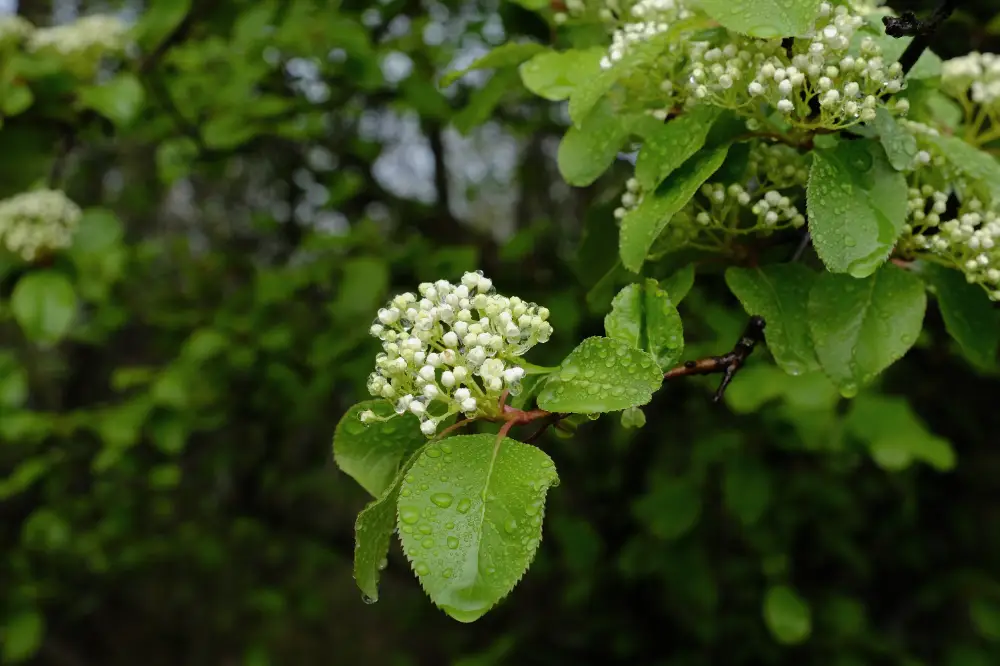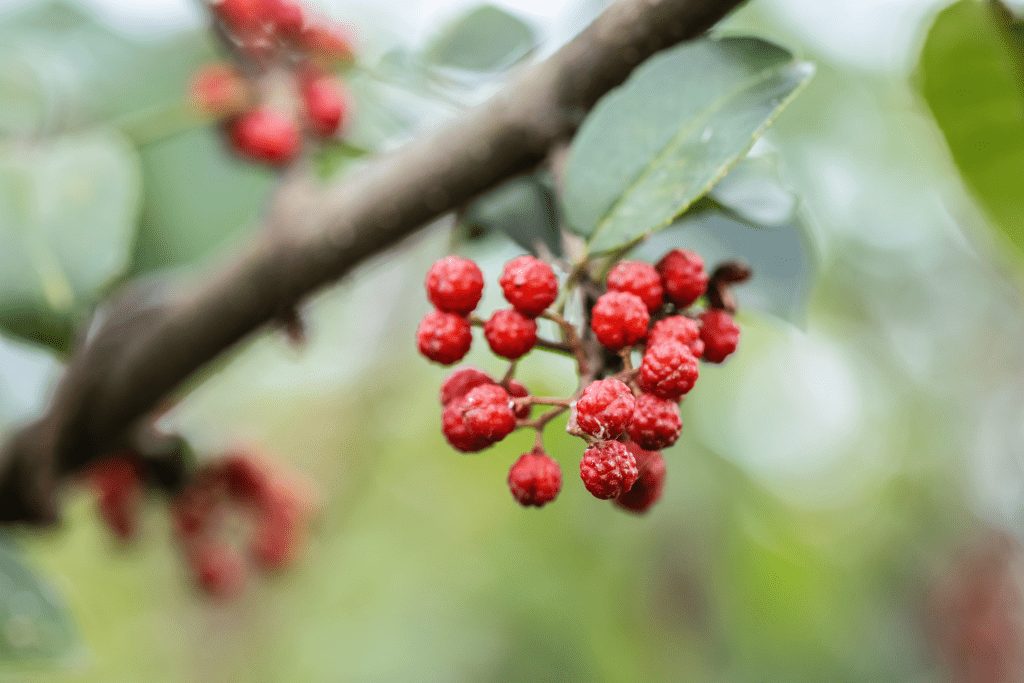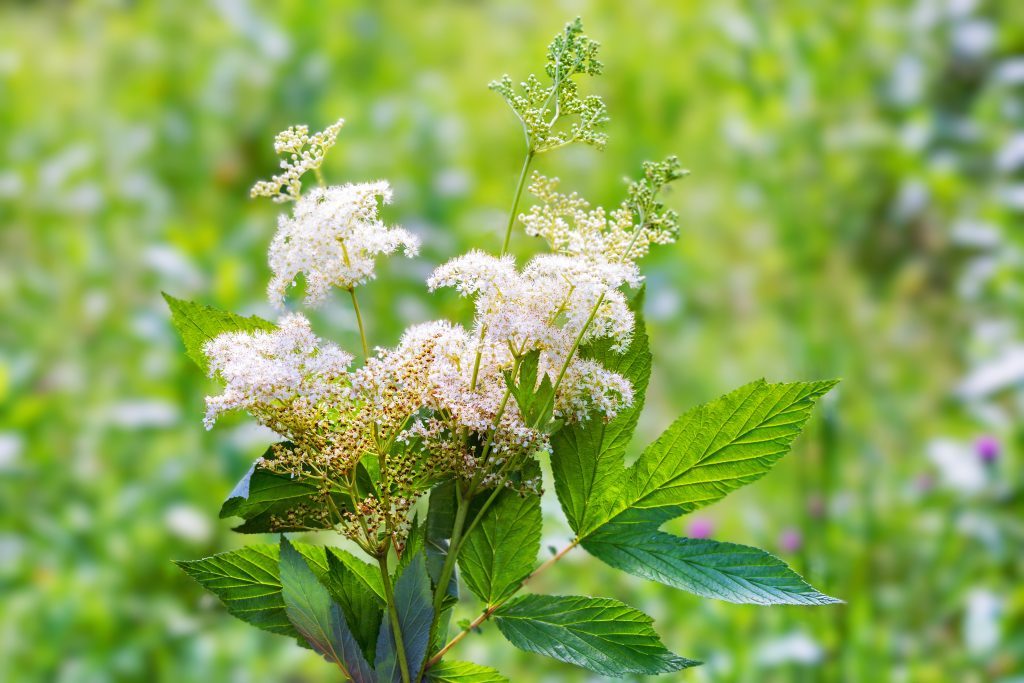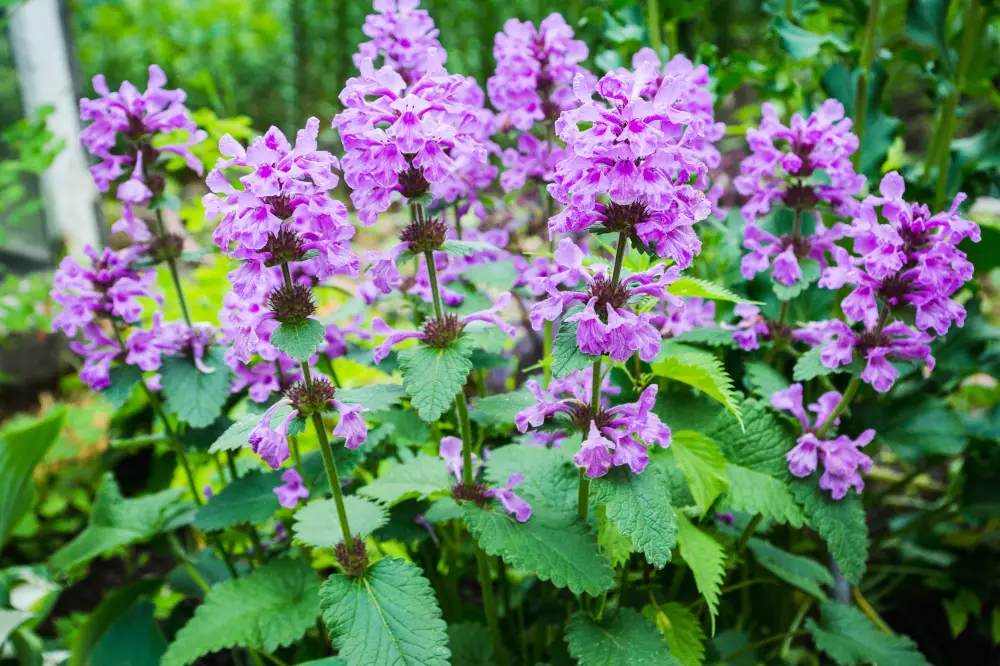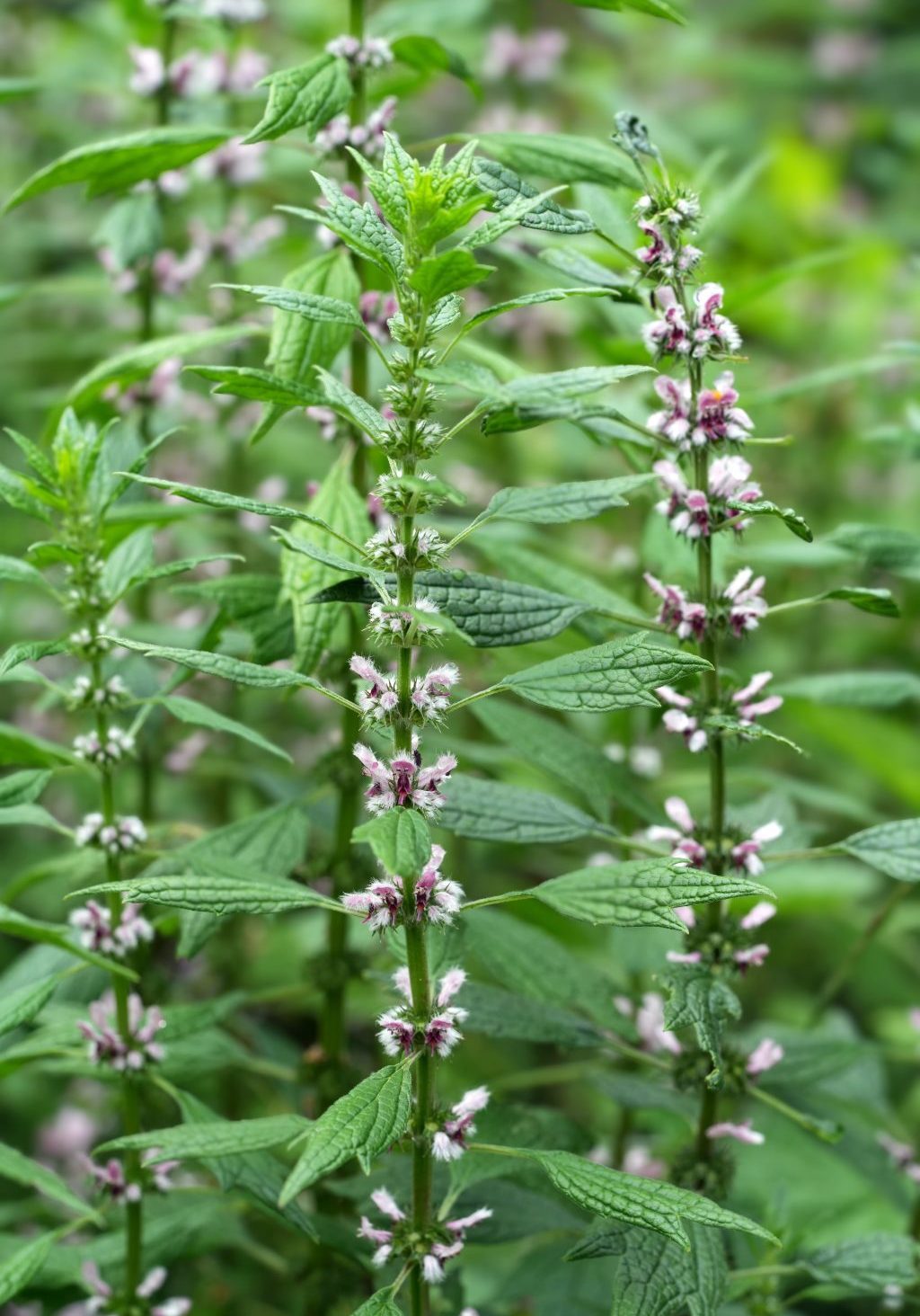
Motherwort
Leonurus cardiaca
Lamiaceae (Mint family)
Guardian of the Heart and Spirit.
Other names:
Lion’s Tail, Throw-wort, Heartwort, Lionheart, Cowthwort
Superpower
The ability to calm and protect the heart, both physically and emotionally. It acts as a nervine and cardiotonic, soothing stress and anxiety while gently supporting heart health, making it a guardian for those feeling overwhelmed or emotionally burdened.
Historically, motherwort was used to support women’s reproductive health, regulate menstrual cycles, ease cramps, and support childbirth. It was also considered a heart remedy for calming palpitations and mild tachycardia, and for its ability to ease anxiety and nervous tension.
Current Uses: Today, motherwort is valued as a gentle nervine to relieve stress and anxiety, particularly when it affects the heart. It remains popular for menstrual irregularities, emotional stress, and as a general tonic to calm the nervous system.
Cautions
Toxicity: Generally considered safe when used in recommended doses. No known toxic effects reported.
Contraindications: Avoid during pregnancy as motherwort may stimulate uterine contractions. Not recommended for individuals with low blood pressure due to its hypotensive effects.
Interactions: Use caution when combining with medications for high blood pressure or heart medications. Consult a healthcare provider before combining with sedatives.
Known Chemical Constituents
Alkaloids:
-
- Leonurine, Stachydrine, Betonicine: These alkaloids contribute to motherwort’s calming effects on the nervous system, reducing anxiety and regulating heart function.
Flavonoids:
-
- Rutin, Apigenin, Quercetin, Kaempferol: These compounds provide antioxidant support, reduce inflammation, and protect blood vessels, promoting cardiovascular health.
Glycosides:
-
- Bufadienolide, Lavandulifolioside: These glycosides help regulate heart function and contribute to motherwort’s cardiotonic properties.
Iridoids & Terpenoids:
-
- Harpagide, Ajugoside, Ursolic Acid: Known for their anti-inflammatory and analgesic effects, helping soothe pain and inflammation.
Vitamins:
-
- Vitamins A and C: These vitamins provide immune support and promote general well-being, complementing motherwort’s nourishing effects.
Tannins:
-
- Astringent compounds that help tone tissues and reduce digestive inflammation.
Volatile Oils:
-
- Linalool, Geraniol: Provide calming and anti-anxiety effects.
Saponins:
-
- Support immune health and help regulate stress and inflammation responses.
Botanical Description
Growth Habit: A perennial herb growing up to 3 feet tall, with a sturdy, square stem characteristic of the mint family.
Leaves: Deeply lobed with serrated edges, dark green on top and lighter underneath, somewhat hairy.
Flowers: Small, tubular, pale pink to purple flowers grow in clusters within the leaf axils along the upper stem, blooming in late summer.
Roots: Fibrous root system that spreads easily in gardens and wild areas.
Environment: Thrives in disturbed soils, preferring full to partial sunlight and well-drained soil.
Fun Facts
Motherwort’s name, Leonurus cardiaca, translates to “lion-hearted,” symbolizing its connection to both courage and heart health. In ancient Greece, it was believed to be a remedy for calming the anxieties of pregnant women, hence the name “Motherwort.”
Parts Used
Aerial
Harvest
Timing:
-
- Flowers: Best harvested during peak bloom in mid-summer (June to August), when they contain the highest levels of medicinal compounds.
- Leaves: Gathered alongside the flowers, though slightly less potent.
- Roots: Rarely used, but harvested in autumn for mild astringent and anti-inflammatory properties.
Method:
-
- Use scissors or pruners to carefully snip off flowering tops. Harvest on dry days to avoid moisture. For roots, gently dig around the plant base to lift rhizomes.
Storage:
-
- Flowers and leaves should be dried in a cool, ventilated, and shaded area. Store in airtight containers away from sunlight. Dried flowers are most potent within one year; roots can last up to two years.
Preparations
Teas/Infusions: Used for calming the nervous system, reducing anxiety, and regulating menstruation.
Tinctures: Commonly used for heart palpitations, nervous tension, and menstrual support.
Poultices: Applied topically to soothe minor skin irritations and promote healing.
Capsules: Taken as a supplement for general emotional and heart support.
Sacred Rituals
Daily Tea Ritual: Brew a cup of motherwort tea as part of your daily routine to maintain emotional balance and connect with your heart’s energy.
Affirmations
“I am grounded, protected, and connected to my heart’s wisdom, embracing each moment with courage and love.”
Spiritual Associations
Motherwort is linked to protection and emotional healing, often used to guard against negative energies and foster a sense of safety, especially for women. It resonates with the heart chakra, supporting the flow of love and compassion while providing emotional stability during distress.
Functions
A substance or agent that inhibits the growth of or destroys microorganisms, including bacteria, viruses, fungi, and protozoa.
AntispasmodicA substance or agent that helps relieve or prevent involuntary muscle spasms, cramps, or contractions in smooth or skeletal muscles.
Cardiac tonicRefers to a substance or agent that strengthens and supports the overall health and function of the heart and cardiovascular system.
Emmenagogue (stimulate menstrual flow)An emmenagogue is a substance that stimulates or regulates menstrual flow and can help address menstrual irregularities or delayed periods.
Heart healthHeart health refers to the overall function, strength, and resilience of the heart, including its ability to pump blood effectively and maintain a healthy rhythm.
HepaticA substance or agent that supports, protects, and enhances the function of the liver, including detoxification, bile production, and overall liver health.
HypotensiveA substance or agent that helps lower blood pressure, supporting cardiovascular health and reducing the risk of hypertension-related complications.
LaxativeA laxative is a substance that promotes bowel movements or relieves constipation by stimulating intestinal activity or softening stool.
MenopauseMenopause is the natural biological process that marks the end of a person’s menstrual cycles, defined as occurring 12 months after the final menstrual period. It typically happens between the ages of 45 and 55 and is characterized by a decline in reproductive hormones, particularly estrogen and progesterone.
Menstrual HealthMenstrual health refers to the overall well-being and proper functioning of the menstrual cycle, including hormonal balance, cycle regularity, and the absence of significant pain or discomfort.
Nervine TonicA nervine tonic is a substance that nourishes, restores, and strengthens the nervous system, promoting long-term resilience and balance.
SedativeA substance that calms the central nervous system, reduces nervous activity, and induces relaxation or sleep, often used to alleviate anxiety, agitation, or insomnia.
Uterine tonicA substance that nourishes, strengthens, and supports the healthy functioning of the uterus, helping to maintain or restore its optimal tone and overall reproductive health.

